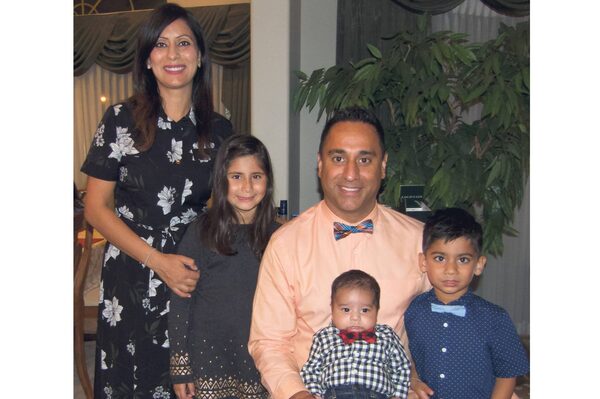
Diabetes is a complex disease that needs constant management, every hour of every day. To help people with diabetes stay on track, nurses, dietitians, doctors, pharmacists and other health professionals work together, many of them as certified diabetes educators (CDEs), who have gained extra knowledge and expertise abut diabetes care.
Their message? "You don't have to do this on your own."
"It's really about providing education, tools and assistance to those living with diabetes, so they can self-manage their condition with support from health professionals," says Rema Sanghera, a diabetes educator and registered dietitian at Vancouver's B.C. Women's Hospital and Health Centre.
Most of Ms. Sanghera's clients have gestational diabetes, which comes on during pregnancy and usually disappears afterward, but is associated with a higher risk of type 2 diabetes later in life and can cause serious complications if not well managed.
The first hurdle is often to convince expectant moms that it isn't their fault and to help reduce their anxiety, she says. "When patients first come in, they are usually pretty upset about the diagnosis and are blaming themselves."
Their families may also be upset because they believe the mom-to-be isn't eating well and exercising, and has somehow brought the condition on herself.
"When women are upset, they typically go to the internet, are often misinformed and put themselves on extremely restrictive diets. When they arrive here, we try to put their minds at rest. We answer their questions and address their concerns. We provide them with education that sets them on the right path to healthy blood sugar levels, healthy weight gain and diet, and a healthy lifestyle."
Sharan Sandhu first tested positive for gestational diabetes during her second pregnancy in 2013. "There was a lot of self-blame until I was referred to the Diabetes Clinic at Women's," she says.
Initially, she "went into panic mode," says Ms. Sandhu. "I'd never even heard the term gestational diabetes until I was pregnant with my first. But after learning more, I focused on eating more regularly and fitting physical activity in – basically it was a complete 180-degree change in the way I was living my life."
Before her diagnosis, the busy mom often skipped breakfast, didn't eat lunch until late in the afternoon and then had dinner just before bed. "I didn't realize you have to regulate your eating, or that you should do at least 15 minutes of activity after a meal to level out your blood sugar. The hardest part for me was getting the diet right, but the diabetes team at the hospital mapped it all out for me."
Ms. Sandhu now sees her diagnosis as a net positive. "We're all at risk, and my kids have learned that you have to eat healthy and regularly, and that physical activity is important. I've changed my habits and been able to change some of my family's habits as well."
Diabetes Canada designates the first Monday in November as National Diabetes Educator Day in recognition of CDEs with whom the organization works as part of its Diabetes Education Standards Recognition Program Committee. To support Diabetes Canada, visit diabetes.ca/donate.
This content was produced by Randall Anthony Communications, in partnership with The Globe and Mail's advertising department. The Globe's editorial department was not involved in its creation.